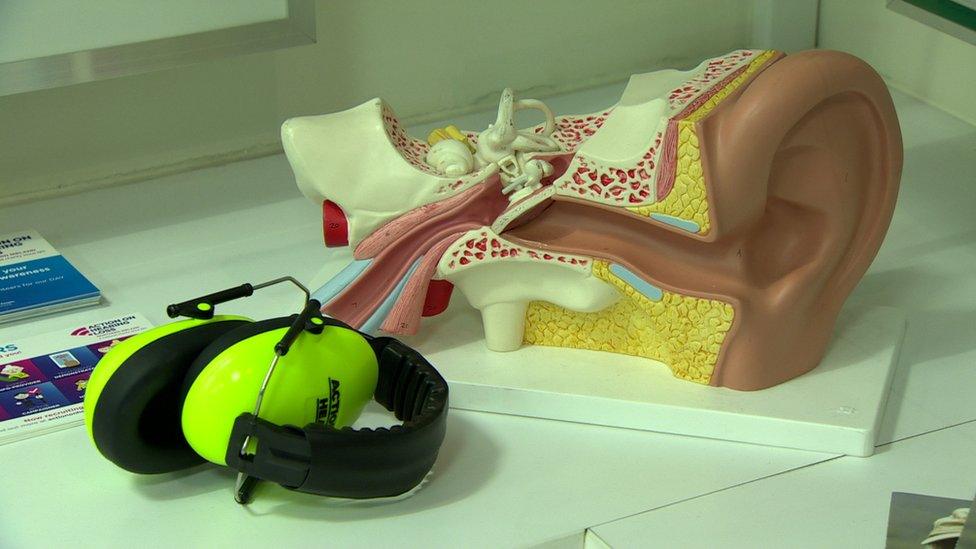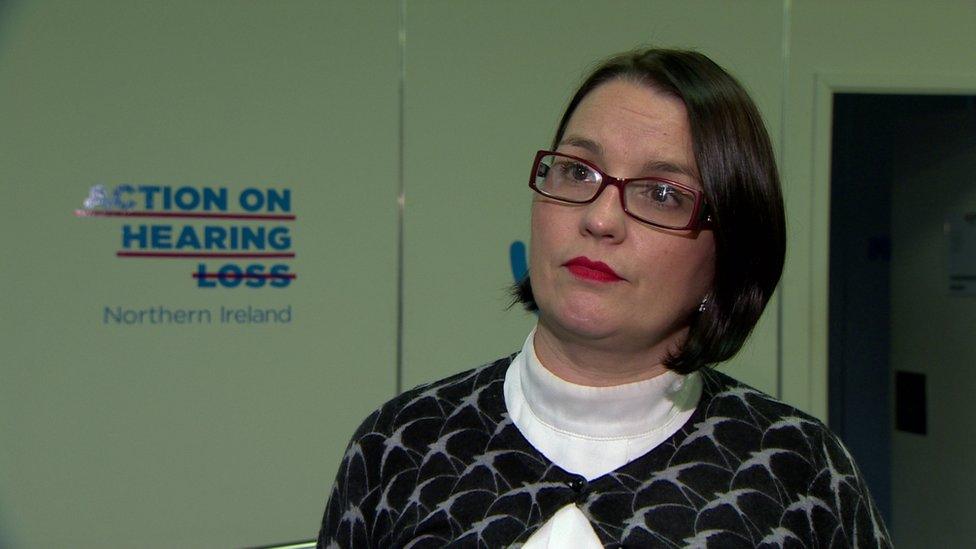Hearing loss 'a barrier to employment', says charity
- Published

The charity believes there are many ways in which employers can help employees who have hearing issues
People with hearing loss continue to face barriers when applying for jobs and in the workplace, according to a charity.
Action On Hearing Loss said employers need to take action to prevent stress and isolation.
A survey of more than 1,000 people found over half felt unfairly treated at work due to their hearing loss.
The charity said this is despite disability discrimination laws being in place.
Five million people of working age in the UK are living with hearing loss or deafness.
Hearing loss 'left me with no confidence'
Tasha Henderson, 25, who has lived with profound hearing loss since birth said she has experienced difficulties from employers first hand.
"I didn't declare my hearing loss in the past when applying for jobs," she told BBC News NI.
"I had no confidence in myself or my hearing so I always felt people would treat me differently and attitudes can be stigmatised.
"I've had someone's body language change as soon as I've told them about my hearing loss, for example I was asked about medical conditions during an interview and when I said it I knew right away I would not get the job because of the person's body language," she said.
The survey found 44% of people did not disclose their hearing loss because of concerns that employers would not consider them to be fit for the job.
The results showed two thirds have felt isolated in work.
"I've had good and bad experiences from employers - in some places I've had to fight to get support," said Tasha.

Claire Lavery, from Action On Hearing Loss, said people with hearing loss and deafness are often mocked in the workplace
The Equality Commission said it received 63 enquiries related to the issue over the last three years.
Action On Hearing Loss said employers need to act to prevent people from feeling stressed or being bullied.
"It's inconceivable for anyone with another disability to be mocked at work, and that still happens for people with hearing loss or deafness," Claire Lavery from the charity said.
"Employers can be fearful as they feel it may be costly to employ someone with hearing loss but each individual has unique requirements.
"The kinds of adjustments people require are different, so for some it may depend where they are positioned in the office or they may need written notes taken at meetings, and those adjustments can be cost neutral and it is about changing behaviours in the workplace."
'Small changes can go a long way'
Tasha said her confidence has grown.
"My employers are great, they're very understanding when it comes to the fact I can't take a phone call and that it can be very demanding having to communicate with customers all day every day," she said.
"Small changes can go a long way, even if it is sitting one to one and asking the person if they're OK."